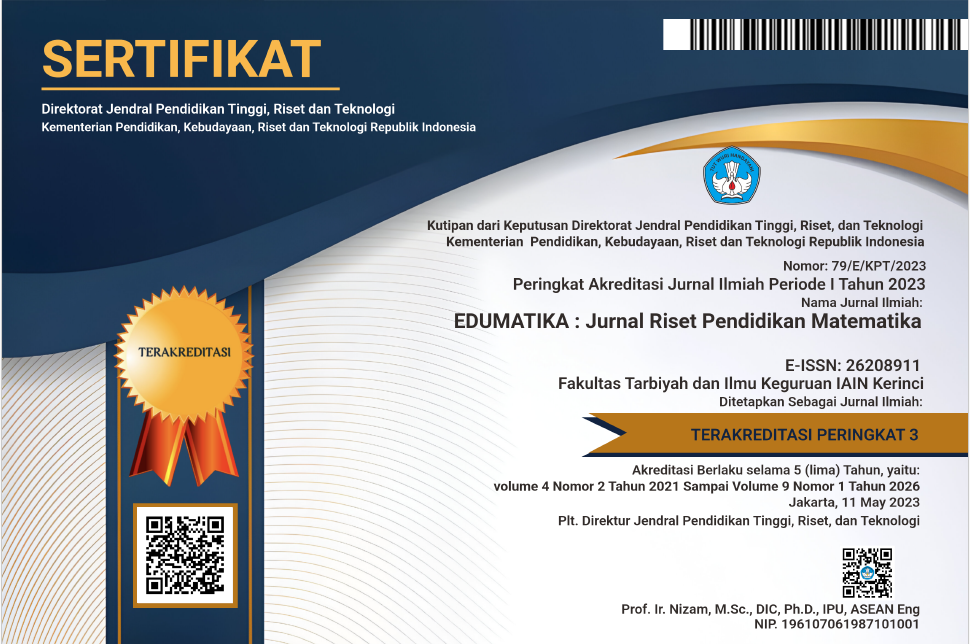Analisis Terhadap Disposisi Berpikir Kreatif Siswa Pada Pembelajaran Matematika
Abstract
This article was a qualitative research type grounded theory. The purpose of this study is to analyze the creative thinking disposition through junior high school students in order to understand students’ disposition on creative thinking deeply. This study belongs to postpositivism paradigm research. According to ontological side, the reality about students’ creative thinking disposition is actually appeared on students but not or have not been understood before, it just predictable. Otherwise, according to epistemologycal side, the prediction about creative thinking disposition is needed to be more understood. That’s way qualitative research is needed to overcome students’ negative creative thinking disposition. Researcher as the instrument analyzes students’ creative thinking disposition wisely with using triangulation of the data. This study was implemented in one of the junior high school with 25 students as the subject. Based on the analysis of the data, the finding is obtained in this study are: (1) the has complete facilities with fresh air and a clean environment, (2) mathematics studying and learning process is very optimal and conducive so that it can give a positive attitude in students’ creative thinking disposition, (3) based on the result of questionnaire data, there are 20 students (80%) have a positive attitude in creative thinking disposition, although there are 5 students (20%) have a negative attitude in creative thinking disposition. We can conclude that most of the students have a positive attitude in creative thinking disposition.















